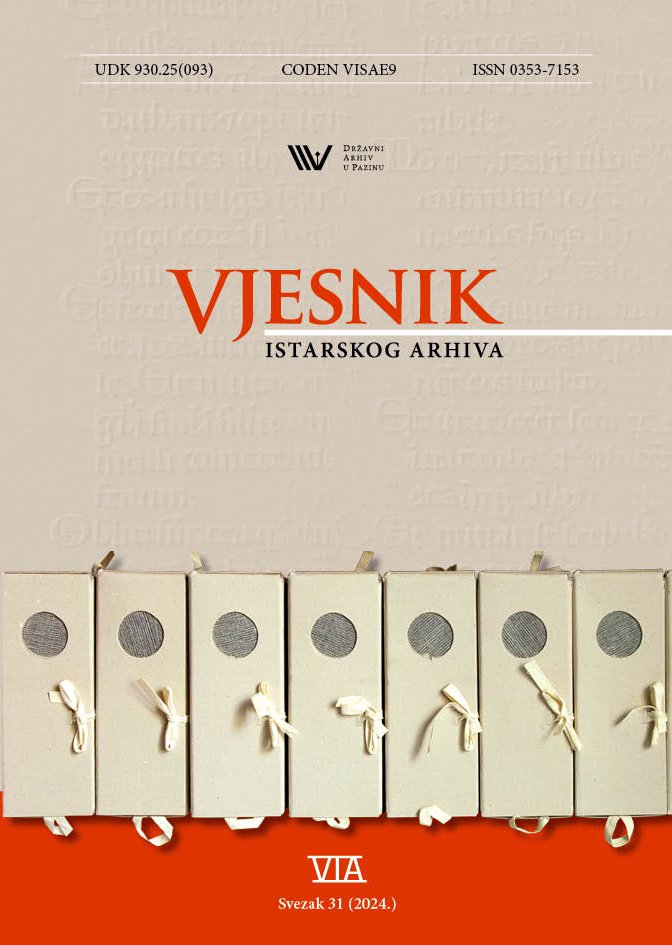Son of Istria dedicated to Croatian historical sources (On the occasion of the 85th birthday of the Academician Josip Bratulić and ahead of the 25th anniversary of his membership in the Croatian Academy of Sciences and Arts (HAZU)
DOI:
https://doi.org/10.31726/via.31.3Keywords:
Josip Bratulić, editor, reviewer, research and publication of historical sourcesAbstract
The article was devised based on the lecture »The work of academician Josip Bratulić on historical sources« delivered in the Toni Peruško Hall at the Faculty of Humanities of the Juraj Dobrila University in Pula (18 October 2019). The lecture was given at the symposium entitled »Hvala delu i težaku« (Thanks to hard work and the hard worker), dedicated to the 80th birthday of academician Josip Bratulić and organized by the aforementioned Faculty and the Croatian Writers' Club »Dr. Ljubica Ivezić«. In the article, the author presented three fields of academician Bratulić's work on Croatian written sources. The first is related to the beginnings of his scientific research, starting with his master's thesis The Apocrypha on Joseph the Beautiful in Croatian Medieval Literature (defended in 1970) and his doctoral dissertation The Istrian Demarcation as a Literary Monument of Medieval Istria (defended in 1975 at the Faculty of Philosophy of the University of Zagreb). Since then, he has devoted himself to the research of medieval and early modern sources written in Glagolitic script - working both as an editor of scientific critical editions and as a translator of manuscripts. The second field refers to the editing of texts and reprints of works by Renaissance, Baroque, early-modern and revival Croatian authors or authors who wrote about Croatia. Among them are Marulić, Nikola Šubić Zrinski, Zoranić, Gundulić, both Vrančićs (Antun and Faust), Jurjević, Belostenec, Habdelić, Katarina and Petar Zrinski, Ritter Vitezović, both Relkovićs (Matija Antun and Josip Stjepan), Kanižlić, Fortis, Katančić, Brezovački, Čevapović, Gaj, Kurelac, Mažuranić, Voltić, Kundek, Volčić, Starčević and Benešić. The third field of his work, the reviewing of scientifically and critically prepared transcriptions and translations of written sources, was only outlined in basic terms and is far from a complete valorisation of his work. By working on historical sources, academician Bratulić joined not only the immortal persons of merit in Croatian historiography, but also those in Croatian (Paleo)Slavic studies, philology and the history of literature. Considering his oeuvre, we believe that the results of his work will prove useful to current and future generations of scientists, as well as lovers of Croatian written and cultural heritage, regardless of their level of education. We are convinced that this was and remains his mission in life.
Downloads
Published
Issue
Section
License

This work is licensed under a Creative Commons Attribution-NonCommercial 4.0 International License.

